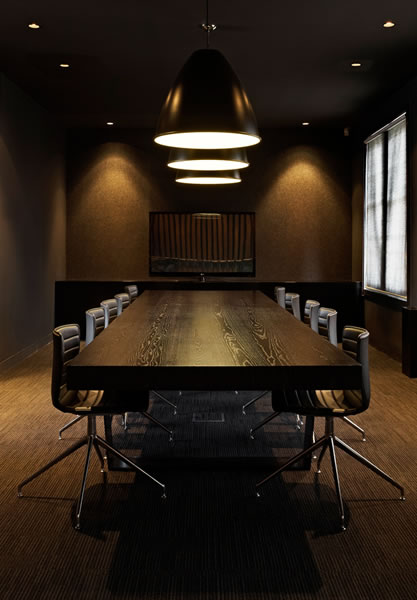Please bear in mind that these are still early notes and are not set in stone, especially as more setting information becomes available from White Wolf. However, we do not anticipate deviating from these notes drastically when we run Dark Metropolis.
Clan Gangrel
Adapt and Survive
Mask: Confident, adaptable survivalists who dominate their surroundings
Dirge: Control-freaks desperately hiding the constant struggle against their feral Beast
Who Are They?
If the Gangrel know one thing, it’s how to survive in any situation. To evolve. Gangrel have lived in the Norwich greater metropolitan area for years, and they have been changed by the landscape, and changed it in turn.
Consummate survivors, they are the rulers of the concrete jungle. They admire their country cousins, survivors of the forests and wild lands, but look down on any neonate who tries to ape that feral attitude while living in the city.
Just like their feral cousins, they are obsessed with territory. In order to be Recognised within the Clan, you must own territory, whether you have stolen it, negotiated for it from a Regent, or tamed unclaimed land.
What Do They Want?
Dominance - over their surroundings, over their own fates, and over those who would threaten their survival.
Where Did They Come From?
Everyone knows that they came from the forests, from the wilds, and the modern world spring up around them. But instead of simply watching, they became part of the world and made sure that it grew into something they could use.
After the previous Prince was killed in the extensive World War II bombing of the Metropolis, the current Prince Lockwood seized power through charisma, a smart plan, and allies - all power blocs respected by her Clan. She has shaped the city itself as any Gangrel would, with her own territory being entirely renovated, cultivated and gated off as one of the most desirable neighbourhoods in the Metropolis.
What Do They Do?
Students of the science of herds and feeding grounds, they consider part of owning a territory to be shaping it to best serve them. They are social scientists and property magnates. Their domains are carefully managed farms, often planned with precision and moving almost like clockwork. The Gangrel take a long view - they don’t just focus on feeding themselves for one night, they build themselves an environment that means they can continue to feed in the most sustainable way. It’s the difference between giving someone a fish and teaching them to fish.
They are smart, tough, refined when they need to be, violent when the situation calls for it, and above all they need to move confidently through any situation. They must show no doubt in front of the other Clans. Many refuse to show doubt even amongst their brethren.
The Gangrel more than any other Clan will raise fists to one another, issuing challenges, showing displeasure, showing dominance, or honing each other’s skills. But if you are taking territory from a fellow Gangrel, then any method is acceptable - backroom deals, inspiring revolt, violence, or smarts - so long as it works. They are highly critical of anyone who is bestial or savage, because it indicates a lack of self control, a lack of self knowledge, and a demonstration that someone is not ready to survive in the Metropolis.
To frenzy is to admit that the Beast is stronger than you are. A Gangrel would never seek to reject or suppress their Beast, but they cannot let it control them. Many Gangrel seek out private lives in which they can indulge their darker, more bestial sides, seeking to exhaust their Beast under controlled circumstances. This is a weakness, of course, and of course no Gangrel could ever have such a weakness...
High Court and Low Court
The Gangrel of the High Court enjoy an elevated presence and respect from the influence of their Prince. She insists on separating her Gangrel blood from her Invictus status, however, and lets the Gangrel dictate their own personal policies and politics.
More powerful Gangrel enjoy and seek out stability and order, because they and their allies are the ones who can assert it. Stability is good for the Herds, and neonates who threaten that are quickly crushed: any who survive are worthy of at least a little respect.
In the Low Court, Gangrel try to squeeze every last drop of possible respect or power they might get from being the Prince’s Clan, from being tough, or smart, or knowing the city’s streets. Some work together in packs, some work with members of other Clans to share each other’s strengths, and others trust only themselves and their Beasts.
Development Notes
The Gangrel have always been the ones you can’t kill, but in the Metropolis, that means something very different. We’re interested in exploring the impact of living in an extremely urbanised environment on a Clan that is classically seen as ‘sleeping in a field’.
In Blood and Smoke, the Gangrel’s Beast no longer affects their mental capacities, and we are interested in further exploring how that affects their survivalist attitude. Instead, their Beasts lie closer to the surface than it does with other Clans. Obviously this can be a great strength for a Gangrel who needs a physical boost, but we want to be able to explore the risks inherent in giving up control on such a fundamental level, and how that can impact someone’s long-term plans for survival.
Questions to think about with Gangrel characters
Who were you in life? How did you lose your mortal life to your sire, and how does that affect how you approach your Requiem?
How do you shape your environment? Do you own territory - if so, how did you gain it?
If you don’t have territory of your own, how are you planning on gaining it - through favours or betrayal, manipulation or violence?
How do you strike the balance between your Beast and your self-control?











